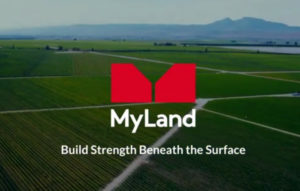 MyLand is growing as it focuses on soil health. The Arizona-based company continues to add expertise as it moves into the “next stage of growth for a regenerative future.” In the past month, MyLand has announced four new appointments.
MyLand is growing as it focuses on soil health. The Arizona-based company continues to add expertise as it moves into the “next stage of growth for a regenerative future.” In the past month, MyLand has announced four new appointments.
 Jonah Parker is Vice President of Operational Planning. In this role, he will oversee the development and roll-out of MyLand’s regional Soil Health Center network. The Soil Health Centers are key to MyLand’s soil health mission and will amplify the company’s next stage of growth for a regenerative future.
Jonah Parker is Vice President of Operational Planning. In this role, he will oversee the development and roll-out of MyLand’s regional Soil Health Center network. The Soil Health Centers are key to MyLand’s soil health mission and will amplify the company’s next stage of growth for a regenerative future.
 Joe Ruiz was named Director of Sales, Western Region, responsible for client expansion and new client acquisition in the important Western United States and Mexico. He will work with growers and partners in this region to implement MyLand’s cost effective and scalable regenerative agriculture solution, analyze soil health improvement, and deliver a seamless customer experience.
Joe Ruiz was named Director of Sales, Western Region, responsible for client expansion and new client acquisition in the important Western United States and Mexico. He will work with growers and partners in this region to implement MyLand’s cost effective and scalable regenerative agriculture solution, analyze soil health improvement, and deliver a seamless customer experience.
 Dr. Pradeep Monga, former Deputy Executive Secretary, United Nations Convention to Combat Desertification (UNCCD) was appointed to the Board of Directors for MyLand. This appointment elevates the company as a global leader in soil health and regenerative agriculture and positions it at the forefront of the conversation around the impact of investing in land and soil health on decarbonization, climate resilience, water efficiency, food security, nature-based health solutions, eco-restoration and the economic security of farmers and local communities around the world.
Dr. Pradeep Monga, former Deputy Executive Secretary, United Nations Convention to Combat Desertification (UNCCD) was appointed to the Board of Directors for MyLand. This appointment elevates the company as a global leader in soil health and regenerative agriculture and positions it at the forefront of the conversation around the impact of investing in land and soil health on decarbonization, climate resilience, water efficiency, food security, nature-based health solutions, eco-restoration and the economic security of farmers and local communities around the world.
 Shelley Baugh joins the company as Senior Director of Marketing responsible for leading all marketing initiatives, communications, and public relations for the organization. She comes to MyLand with over 14 years of diverse experience in data driven marketing, most recently as Director of Marketing & Communications for Heliae where she led the planning and development of soil health marketing initiatives.
Shelley Baugh joins the company as Senior Director of Marketing responsible for leading all marketing initiatives, communications, and public relations for the organization. She comes to MyLand with over 14 years of diverse experience in data driven marketing, most recently as Director of Marketing & Communications for Heliae where she led the planning and development of soil health marketing initiatives.
MyLand’s innovative and patented technology allows farmers to easily and rapidly implement regenerative agriculture practices and improve their soil health by harnessing the land’s own natural ecosystem. MyLand partners with farmers to infuse life into the soil, helping to return farms to their most fertile state, achieving greater productivity and enhanced profitability. For additional information on how MyLand is transforming soil health globally, visit MyLand.ag.


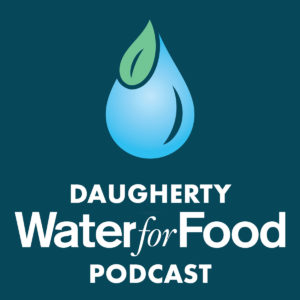 This episode of the
This episode of the  Safa analyzes eddy covariance flux data from installed systems to support remote sensing based model verification and water productivity estimates for several agricultural and natural ecosystems and projects around the world. He works with partnering researchers at LI-COR Biogeosciences, USDA-ARS and University of Nebraska-Lincoln. Safa also supports satellite based water productivity estimates in Nebraska and other countries using satellite based remote sensing models. Additionally, he helps train graduate students and postdoctoral scholars in satellite image processing methods, flux data processing and micrometeorological methods.
Safa analyzes eddy covariance flux data from installed systems to support remote sensing based model verification and water productivity estimates for several agricultural and natural ecosystems and projects around the world. He works with partnering researchers at LI-COR Biogeosciences, USDA-ARS and University of Nebraska-Lincoln. Safa also supports satellite based water productivity estimates in Nebraska and other countries using satellite based remote sensing models. Additionally, he helps train graduate students and postdoctoral scholars in satellite image processing methods, flux data processing and micrometeorological methods.
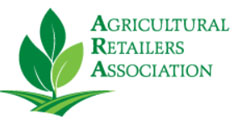


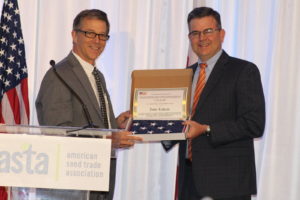
 Three months ago
Three months ago  “Really what we are focusing on with this company is our tagline, the science of sustainable wellness,” said Putnam-Badding, which means both sustainability in packaging and sourcing, as well as long-term health and wellness.
“Really what we are focusing on with this company is our tagline, the science of sustainable wellness,” said Putnam-Badding, which means both sustainability in packaging and sourcing, as well as long-term health and wellness. 




 The Senate Committee on Agriculture held a hearing Wednesday on
The Senate Committee on Agriculture held a hearing Wednesday on 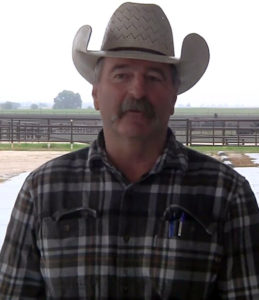 In his
In his